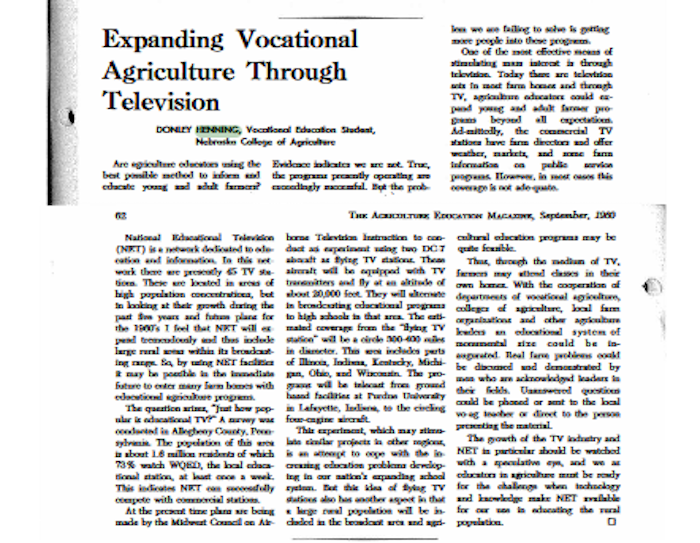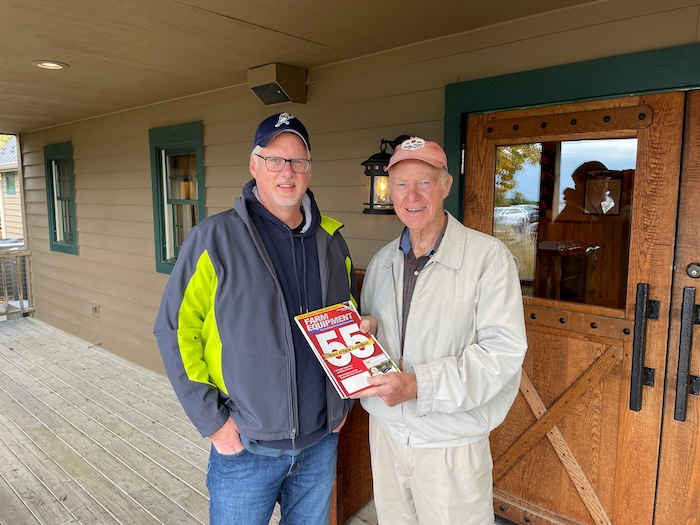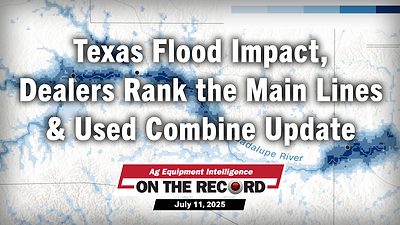By Don Henning, retired executive vice president of Johnson Hill Press, Farm Equipment publisher and former strategic planning consultant to Lessiter Media, among others
Editor's Note: This guest editorial was written by Don Henning, the retired executive vice president of Johnson Hill Press, which owned and operated Farm Equipment for 30-some years before its successor, Cygnus Business Media sold it to the Lessiter family in 2004. In reflection on his career and consulting work (including serving Lessiter Media for 10 years), Don revisits the impact of a chance meeting with his ag educational professor at the University of Nebraska in 1960. His essay below, which appeared in the September/October 2023 edition of The Agriculture Education magazine, was reprinted with permission from the National Assn. of Agricultural Educators. -- Mike Lessiter, Editor/Publisher
He was a teacher of future teachers. It was a responsibility he seemed to bring to the classroom every day. He was always prepared, always had an agenda and was genuinely enthusiastic about his subject matter. He was the most memorable professor in my college experience at the University of Nebraska. He was Dr. Howard Deems, Chairman of the Department of Vocational Education from 1951 to 1965.
I first met Dr. Deems when I was a second-semester sophomore in the College of Agriculture. I had started my college experience knowing I wanted a degree in agriculture but nothing more specific than that. After a 4-year hitch in the Air Force, my freshman year was dedicated to tending to unfinished business, some of which should have been taken care of in high school and then learning how to "hit the books" again.
As a second-semester sophomore in the Spring of 1959, it was time to get more specific in my graduation goals. I interviewed most of the department heads on campus to get input on specific opportunities their specialty might offer. It was a good learning experience.
My interview with Dr. Deems went very well. He cited numerous examples of graduates who became successful vocational agriculture teachers and excelled in the classroom. Then he referenced others who went on to satisfying careers in business and still others who returned to the farm and were leaders in their communities. I liked what I heard; it was a match.
Dr. Deems became my advisor. I remember his first class as being a special experience. He used anecdotes and real-life experiences that piqued my interest. But it was his enthusiasm, his genuine enthusiasm for his subject, that really impressed me. I looked forward to his classes.
It was a class in the Spring of 1960 that had the most lasting impact on my life. I believe it was Voc Ed-107 and involved a combination of classroom preparation and practical teaching in a nearby high school.
Impact on Agriculture Required!
The first class of that semester Dr. Deems started by spelling out his expectations for us. At the top of that list was that each of us needed to contribute to agriculture in order to get a grade. I remember thinking at the time, "Oh really"? He then proceeded to outline what he meant, and the routes open to us.
The top target and the best grade would go to the individual or individuals who got an article accepted for publication in the National Journal for Vocational Agriculture Teachers (i.e. The Agricultural Education Magazine). The second level would be those published in the state vocational education publication. The third level was to prepare a detailed lesson plan that would be distributed to every vocational agriculture classroom in the state.
I decided to go for the top grade. The short version of this story is that my article was accepted, I received the grade, and the article was published in the September 1960 edition of the Agricultural Education Magazine. This publication then became a noteworthy resume enhancer for me.

Pictured is Don Henning’s nationally published paper that earned him an A in the class and was the principal reason he was given a unique opportunity at DeKalb Seed.
'The Paper Gave Me a Chance'
As circumstances developed, in the Spring of 1961, there were very few openings for vocational agriculture teachers, so I began interviewing. There was a schedule of companies coming to campus that included Ralston Purina, Four by Four Feeds, Tekseed Hybrids and DeKalb. I had my best interview with DeKalb and received a job offer to start as a seed production trainee in its Redwood Falls, Minnesota facility. While still in the negotiating process, a position opened in the advertising/communications department in DeKalb, Illinois. The published article became the principal factor resulting in another interview and ultimately getting that job.
I went from copy writer and internal publications editor to public relations manager, wheat advertising manager, advertising account executive and finally to a position as Executive Vice President at business-to-business publisher, Johnson Hill Press in Fort Atkinson, Wisconsin.
At Johnson Hill Press, we developed a unique business model providing custom publishing services to a significant agricultural client base. This included the Farm Credit System, Purina Mills, DeLaval, the Jamesway Division of Butler Manufacturing, the Farm Tire Division of Goodyear, Ag Chem Division of Conagra and Massey Ferguson.
The company also owned Farm Equipment, a magazine for farm equipment dealers, and Feed and Grain Times, a magazine focused on the feed and grain storage and services business. Later, the company broadened the client base to include organizations like Piper Aircraft, Peterbilt, Great Dane, the truck tire division of Goodyear and others.

Farm Equipment Editor/Publisher Mike Lessiter with his mentor, Don Henning, at a North American Equipment Dealer Assn. (NAEDA) Trap-Shooting event in the fall of 2023, in which Farm Equipment & NAEDA co-funded a scholarship to recognize the magazine's 55 years of serving the industry.
It was a rewarding and enjoyable career that started with a challenge extended by Dr. Deems in 1960. He deserves to be recognized for his dedication to agriculture, to teaching and especially for his classroom enthusiasm.
The article that started this journey? I was able to call on my experience with the Armed Services Radio and Television Network in Dhahran, Saudi Arabia and also as a part-time student engineer at KUON-TV to lay out a scenario for expanding the reach of educational television. Changing technologies were opening new avenues to reach more remote areas that were being underserved.
Included in those alternatives was the utilization of a flying TV transmitter. At that time an organization called the Midwest Council on Airborne Television Instruction was conducting experiments using two DC-7 aircraft as transmitter platforms. My article expanded on that concept along with other technologies and how they could be utilized to expand the reach of educational television.
FOR MORE INFORMATION:
Don Henning’s observations on Farm Equipment history are detailed in a special video history series brought to you by AgDirect. In Part 1, Henning reflects on how he ended up working for the company and some of the early days of Farm Equipment.






